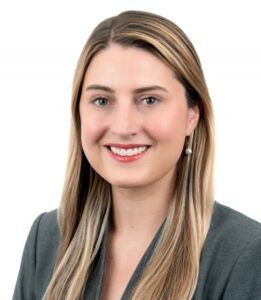#mckessonideashare
©2025 McKesson Corporation. All rights reserved.

Microplastics are infiltrating our environment, our bodies, and even our medications, posing emerging risks to both human health and sustainability. This session explores the sources and health effects of microplastics, the environmental impact of pharmaceutical packaging, and actionable strategies for reducing plastic waste in pharmacy practice. Pharmacists and pharmacy technicians will walk away with tools to promote environmental stewardship while safeguarding patient and public health.
Pharmacist Learning Objectives
1. Discuss microplastics and their primary sources and exposure pathways.
2. Summarize the latest research on the health effects of microplastics, including their role in inflammation and chronic disease.
3. Evaluate the environmental impact of pharmacy packaging and medication waste.
4. Support policy and patient education initiatives that promote sustainability in healthcare.
5. Develop a practical strategy to reduce microplastic exposure and increase sustainability in pharmacy practice.
Technician Learning Objectives
1. Discuss microplastics and their primary sources and exposure pathways.
2. Summarize the latest research on the health effects of microplastics, including their role in inflammation and chronic disease.
3. Evaluate the environmental impact of pharmacy packaging and medication waste.
4. Support policy and patient education initiatives that promote sustainability in healthcare.
5. Develop a practical strategy to reduce microplastic exposure and increase sustainability in pharmacy practice.
Meet Your Speaker
 Alexandra E. Fogarty, MD, FAAPMR, ABPM
Alexandra E. Fogarty, MD, FAAPMR, ABPM
Assistant Professor
Pain, Spine & Musculoskeletal Medicine
Department of Physical Medicine & Rehabilitation
University of Utah School of Medicine
Dr. Alexandra Fogarty, MD, FAAPMR, ABPM, is an Assistant Professor in the Department of Physical Medicine & Rehabilitation and a triple board-eligible specialist in PM&R, Sports Medicine, and Pain Medicine. Fellowship-trained at Harvard Medical School/Massachusetts General Hospital, she provides comprehensive, integrative care across the spectrum of musculoskeletal and pain conditions, combining advanced diagnostics with state-of-the-art treatments. With sustainability at the forefront of her practice, Dr. Fogarty is editor of the forthcoming volume Climate Change and Disability: A Collaborative Approach to a Sustainable, Inclusive Future for All, and has authored multiple peer-reviewed publications on waste reduction in interventional pain care. Her clinical approach emphasizes restoring function, achieving patient-centered goals, and promoting long-term well-being—for both individuals and the environment.
Alexandra Fogarty has no relevant financial relationships with ineligible companies to disclose.
Financial support for this course was provided through an educational grant from McKesson Health Mart.
Pharmacist Universal Activity Number (UAN): 0107-0000-25-106-L04-P
Technician Universal Activity Number (UAN): 0107-0000-25-106-L04-T
Application-based activity
CPE Redemption:
To obtain 1 contact hour of continuing pharmacy education credit (0.1 CEU), learners must participate in the course and complete the exam* and evaluation. Shortly after both the exam and evaluation are successfully completed and submitted, the CPE Statement of Credit can be accessed on CPE Monitor at www.MyCPEMonitor.net.
*CEimpact provides two (2) opportunities to complete the exam. The learner will not receive CPE credit after two failed attempts.